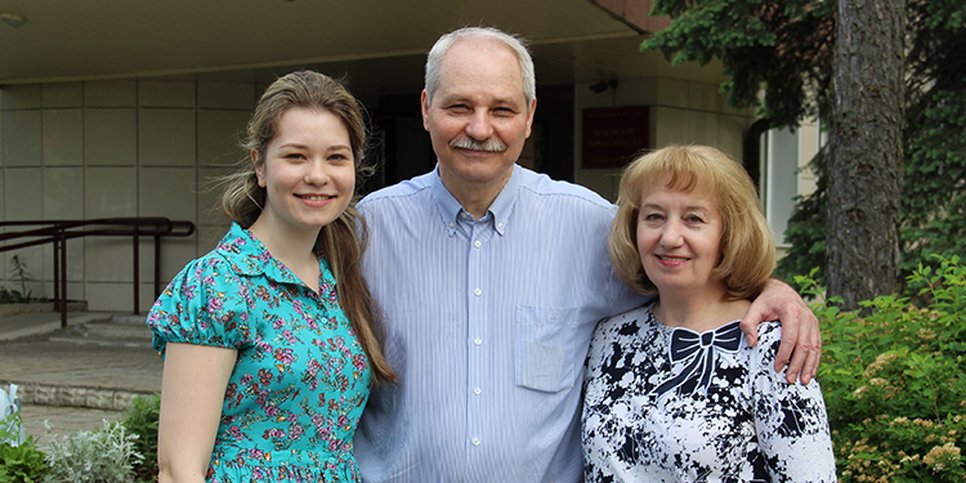Photo: Gennadiy Shpakovskiy with his family before sentencing
Photo: Gennadiy Shpakovskiy with his family before sentencing
61-year-old Gennadiy Shpakovskiy Sentenced to a Record Six and a Half Years in Prison for His Faith
Pskov RegionOn June 9, 2020, Judge of the Pskov City Court Galina Belik sentenced 61-year-old Pskov resident Gennadiy Shpakovskiy to six and a half years in a penal colony, despite the absence of real crimes. He was taken into custody in the courtroom. His only “crime” is to discuss the Bible with friends.
The court found Gennadiy Shpakovskiy guilty of organizing the activities of the extremist organization and its financing, considering that religious meetings with believers are not the exercise of the private right to freedom of religion, but the continuation of the activities of Jehovah's Witnesses legal entities liquidated by court
Gennadiy Shpakovskiy completely denied any involvement in extremism. In his final address to the judge, he recalled that during Soviet times millions of citizens were repressed on false charges. Among them were Jehovah's Witnesses, who were later rehabilitated by the authorities. "Unfortunately, history repeats itself. Today, the same thing is being done to me and my fellow believers. They accuse me of a monstrous crime, which not only does not conform to my Christian beliefs, but also does not fit into the consciousness of a sane person," said the believer.
"The evidence in the case includes only information that I confess the religion of Jehovah's Witnesses, including meeting to watch religious videos with believers, singing songs with them, praying to God Jehovah and discussing my beliefs with others," said Gennadiy Shpakovskiy and explained that none of these actions is mentioned in the law on countering extremist activities.
The believer referred to the Russian government's explanation of the injunction against 396 Jehovah's Witnesses organizations "does not evaluate the Jehovah's Witnesses' doctrine, nor does it contain any restriction or prohibition on the individual practice of the aforementioned doctrine.
The court did not take into account Shpakovskiy's arguments and sentenced him to 6 years and 6 months in prison. Although the prosecutor had requested 7.5 years in prison, this verdict is the toughest of those imposed on Jehovah's Witnesses in modern Russia.
"Paradoxically, at one of the last sessions Judge Belik personally stressed that the practice of religion, joint meetings and prayers is not a crime, but a right of a Russian citizen, enshrined in Article 28 of the Constitution of Russia," said Arli Chimirov, the lawyer for Shpakovskiy.
Earlier, Judge Belik's questions to Shpakovsky revealed that she was under the influence of prejudice. Addressing the defendant, the judge explained how she understood his actions: "You say: (...) " They will send papers from Brooklyn, I will gather everyone, and we will again learn the Bible the way they want. Not as the state calling itself the Russian Federation wants, but as the state calling itself the United States of America wants" (In fact, the believer only enjoys the inalienable right to freedom of religion, which is guaranteed to everyone by the Constitution of the Russian Federation).
Shpakovskiy's verdict, as well as the decision of the Crimean Supreme Court in the case of another believer, Artyom Gerasimov, were issued in defiance of repeated demands of the UN Working Group and other international structures to stop criminal prosecution of Jehovah's Witnesses. "The decisions of the courts are getting tougher. In terms of international law, the court's verdict is an arbitrary deprivation of liberty for the peaceful practice of religion," said representative of the European Association of Jehovah's Witnesses Yaroslav Sivulskiy.
Gennadiy Shpakovskiy became the 11th member of Jehovah's Witnesses, sent to prison for the faith. A criminal case against the believer was initiated in early 2018. Before that, special services had been watching the believer for several months. On June 3, 2018, he was detained in the apartment of friends while they were peacefully discussing the Bible. Armed FSB officers, with the participation of riot police, broke down the door and searched the home for six hours, after which they interrogated the believers for several hours at the law enforcement unit. Some members were persuaded to self-incrimination by threats of a 10-year prison term, dismissal from employment and other problems.

